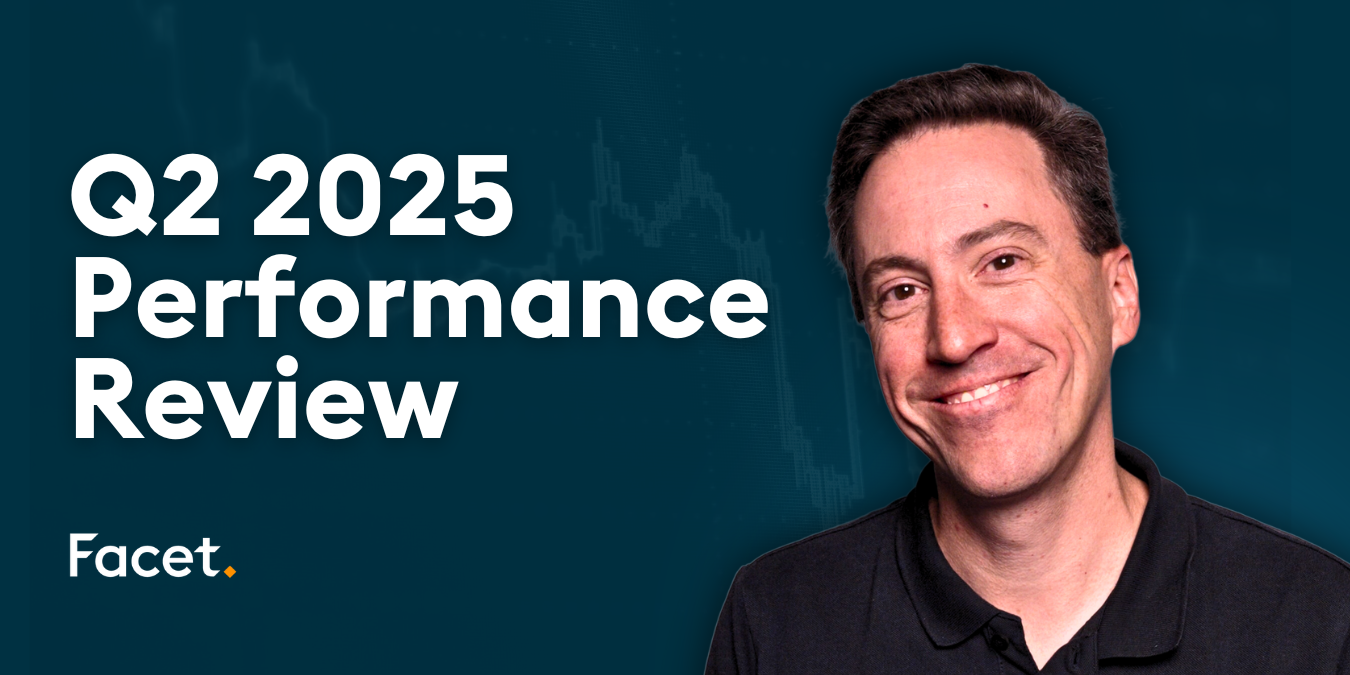
The information provided is based on the published date.
Key takeaways
- Individuals should identify their needs and objectives when choosing a financial advisor, fully understanding fee structures and the advisor's investment philosophy
- Wealth management considers all financial aspects, including retirement, education, and estate planning
- Asset management focuses primarily on investment services
- Wealth management aims to expand, safeguard, and transfer wealth to future generations
- Asset management's goal is to generate investment returns while minimizing losses
- Wealth management primarily targets high-net-worth individuals
- Asset management serves a diverse range of clients, including institutional investors
When choosing a financial advisor, there is a lot to consider. In a time when “financial experts” are seemingly everywhere, knowing who you can trust can be challenging.
A good place to start is with a little bit of education. First learn what the various financial advisor titles mean, and then make an informed decision on which one is right for you.
Wealth and asset management are two distinct disciplines within the financial services industry, each with its own unique characteristics and methodologies.
While there is some overlap in expertise, understanding the differences between these two fields can help you make an informed decision when seeking professional assistance for your financial situation.
In this article, we’ll take a closer look at wealth management vs. asset management to help you better understand the distinctions and similarities between them.
What is wealth management?
Wealth management is a holistic financial planning strategy that empowers individuals to cultivate and safeguard their financial health.
It encompasses a comprehensive framework for financial management, including retirement planning, estate planning, tax planning, risk mitigation, cash flow, and investment optimization.
While asset management primarily centers around your investments, wealth management considers all financial aspects, including your short- and long-term goals, risk tolerance, and individual circumstances.
Key objectives of a wealth manager
Wealth management’s primary objectives are maximizing returns, minimizing taxes, and protecting your assets long-term.
Wealth managers typically assess their clients’ financial resources and develop a customized plan tailored to their individual needs. This may include recommending investments, insurance products, and retirement plans.
Furthermore, wealth managers will work to ensure that the client’s wealth is managed in accordance with their personal values and objectives.
Wealth management pros
Engaging in wealth management can offer numerous benefits to individuals seeking to secure their financial future. Some key advantages include:
- Tailored financial strategies
- Expertise and knowledge
- Holistic financial planning
- Peace of mind
Wealth management cons
Wealth management services may not be ideal for everyone. Some potential drawbacks include:
- Some wealth managers enforce investment minimums and may charge higher fees than asset managers
- May only be available to high-net-worth individuals (HNWIs)
- Not all wealth managers are fiduciaries
- Time and effort required to build a relationship with your wealth manager
What is asset management?
Asset management involves overseeing a portfolio of financial instruments, like stocks, bonds, ETFs, and mutual funds.
The main goal of an asset manager is to generate investment returns while minimizing losses. This is achieved through rebalancing, diversification, and risk management strategies to help clients achieve their desired returns.
These kinds of financial advisors provide personalized investment advice tailored to their clients’ unique goals and risk tolerance. They offer a diverse range of investment products, including mutual funds, exchange-traded funds (ETFs), real estate investment trusts (REITs), derivatives, and commodities.
Asset managers typically charge a percentage on how much you invest with them. This fee model is called assets under management (AUM). Some also make money through commissions on the products they sell.
Key objectives of an asset manager
The primary objectives of an asset manager are to:
- Maximize returns
- Minimize risk
- Increase liquidity
Asset managers strive to achieve these goals by creating tailored portfolios that reflect the individual risk tolerances of their clients.
Asset managers will analyze market conditions and trends before selecting suitable portfolio investments. They also monitor existing assets’ performance to adjust accordingly and maintain optimal returns.
Asset management pros
Asset management can offer numerous benefits to individuals seeking to maximize their investment returns. Some key advantages include:
- Professional advice on how to invest
- Access to a broad range of investments
- Proactive monitoring of performance
- Risk mitigation strategies
Asset management cons
Asset management services may not be ideal for everyone. Some potential drawbacks include:
- Depending on the amount invested, fees can be high
- Rebalancing and diversification require active monitoring
- Commission-based products may create conflicts of interest
Differences between asset and wealth management
Here are the key differences between asset and wealth management.
Focus
Wealth management primarily aims to assist clients with expanding, safeguarding, and transferring their wealth to future generations. Achieving generational wealth necessitates meticulous financial planning, effective tax management, strategic estate planning, and prudent investment decisions.
Asset management focuses exclusively on effectively managing investments to optimize client returns. The primary goal is to construct and uphold investment portfolios that align precisely with your risk tolerance and investment objectives.
Ideal clients
Wealth management primarily serves wealthy people, families, and business owners. Their services often cater to individuals with investable assets surpassing a specific threshold, often in the millions of dollars.
Asset management services cater to a diverse range of clients, including institutional investors, pension funds, endowments, and more. They serve individuals with moderate investment portfolios as well as large organizations with significant assets.
What they do
Wealth management provides a range of services to meet financial needs, taking a holistic approach to supporting all aspects of an individual’s financial life.
Asset management focuses on investment services, including research, portfolio construction, and asset allocation. The primary goal is to generate optimal returns using prudent investment strategies.
Investment approach
Wealth managers create personalized investment strategies, considering your goals, risk tolerance, and time horizons. They develop customized investment plans to emphasize long-term growth and wealth preservation, taking into account your unique circumstances and aspirations.
Asset managers use various investment strategies based on their clients’ preferences, like active or passive management. They conduct thorough research and analysis of market trends to achieve optimal risk-adjusted returns for their clients.
Asset management vs wealth management: Key considerations
When faced with the decision between wealth management and asset management, it’s important to consider certain factors. Let’s explore some key considerations that can help you make an informed choice.
- Objectives: Start by identifying what you want to accomplish. Do you aspire to accumulate wealth over the long term, or do you prioritize safeguarding your existing assets? Understanding your financial objectives is crucial in determining whether wealth management or asset management is the right fit for you.
- Investment mix: If your investment portfolio contains a mix of investment vehicles like stocks, ETFs, bonds, REITs, etc., it might be wise to consider a wealth manager. They handle intricate details and offer comprehensive guidance.
- Degree of engagement: If you want to be involved in decision-making, wealth management is more collaborative. Alternatively, if you seek a more passive approach, asset managers will manage the daily administration of your funds with minimal communication.
- Customization: Wealth management provides personalized financial planning, tax optimization, estate planning, and specialized services. Asset management predominantly focuses on your investments and little else.
How to choose the right professional for your needs
With numerous options available, finding the right financial advisor can feel overwhelming. Here are some pointers to help you make the best choice between asset or wealth management.
Identify your needs
Before you start searching, clearly define your objectives.
- Are you looking to grow wealth, preserve assets, or perhaps both?
- Do you have a specific timeline?
- How much risk are you willing to take to reach your goals?
Knowing what you want to achieve will help you find an asset or wealth manager who aligns with your objectives.
Advice for selecting the right investment advisor for your financial needs
- Conduct due diligence: Find professionals with a strong track record and relevant experience managing wealth or assets like yours. Assess their qualifications, certifications, and professional affiliations. Regulatory bodies such as FINRA and the SEC keep detailed records of certified financial planners.
- Get referrals: Ask around to see if anyone you know has had a positive experience with their financial managers. Ask what attributes they like most about their advisor.
- Review fee breakdown: Make sure you understand how an advisor gets paid. Fee structures vary. Some advisors charge a fixed (flat) fee, while others charge commissions.
- Shop around: Schedule interviews once you’ve narrowed down potential wealth or asset managers. Prepare a list of questions in advance to gather the necessary information for an informed decision. Ensure that they adhere to the fiduciary standard, prioritizing your needs above their own financial interests.
- Evaluate investment philosophies: Inquire about each manager’s investment philosophy. This will tell you what investment opportunities they target, what style they employ (e.g., active or passive investing), and how they evaluate risk. Understanding their investment strategy will help determine if it aligns with your priorities.
Final word
Understanding the differences between wealth management and asset management is important so you can make informed decisions about your financial future.
Whether you’re a novice seeking personalized advice to build your financial literacy or a seasoned investor looking to optimize your existing portfolio, the right approach can significantly impact your financial success.
You can determine whether wealth management or asset management is the right path by carefully considering your specific needs and objectives.
All Facet financial advisors are CFP® Professionals. This means they are fiduciaries held to the highest standards in the industry. Our experts will assess every aspect of your financial life and create an ongoing plan that evolves with you.
To learn more about how Facet can help you reach your financial goals, contact us today for a free consultation.
FAQs and additional resources
What is a fiduciary?
A fiduciary is an individual or organization that acts on behalf of another party, managing their assets and finances legally and ethically. Learn what the fiduciary duty is and why you should care.
What are the most trusted advisor certifications?
With over 200 licenses, designations, and certifications, knowing what to look for is essential to finding the right advisor and the right advice for you.
Where can I find more information on advisor fees?
Return eaters. Unnecessary investment and brokerage fees can add up over time. Learn how to spot them and avoid paying more than necessary.
Facet
Facet Wealth, Inc. (“Facet”) is an SEC registered investment adviser headquartered in Baltimore, Maryland. This is not an offer to sell securities or the solicitation of an offer to purchase securities. This is not investment, financial, legal, or tax advice. Past performance is not a guarantee of future performance.








